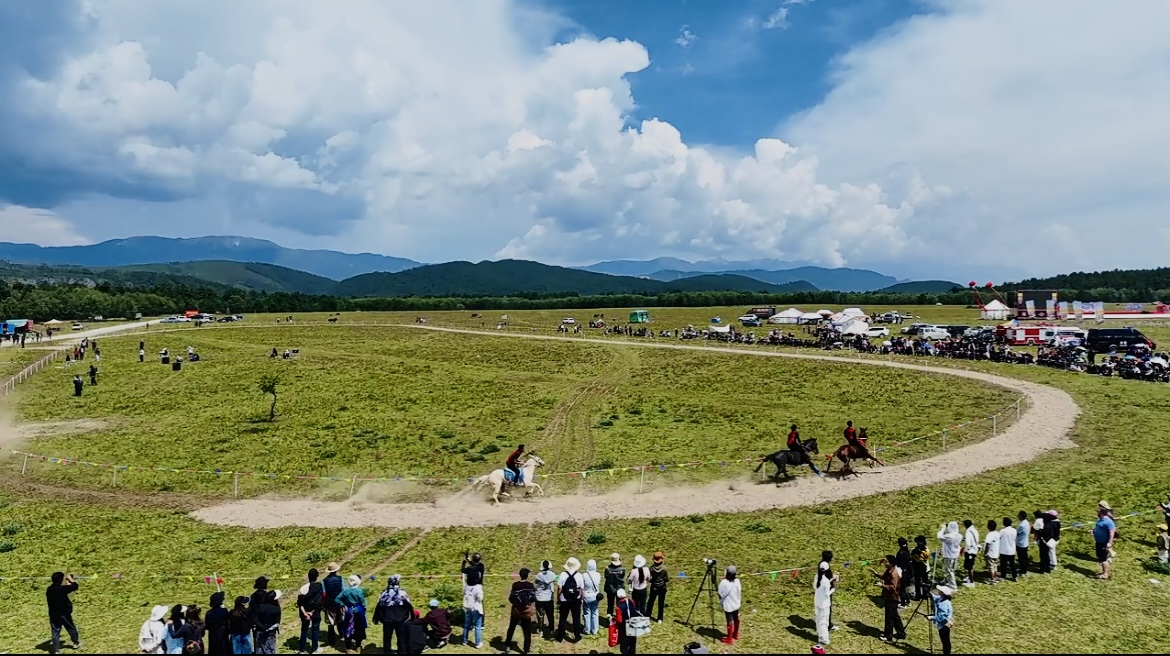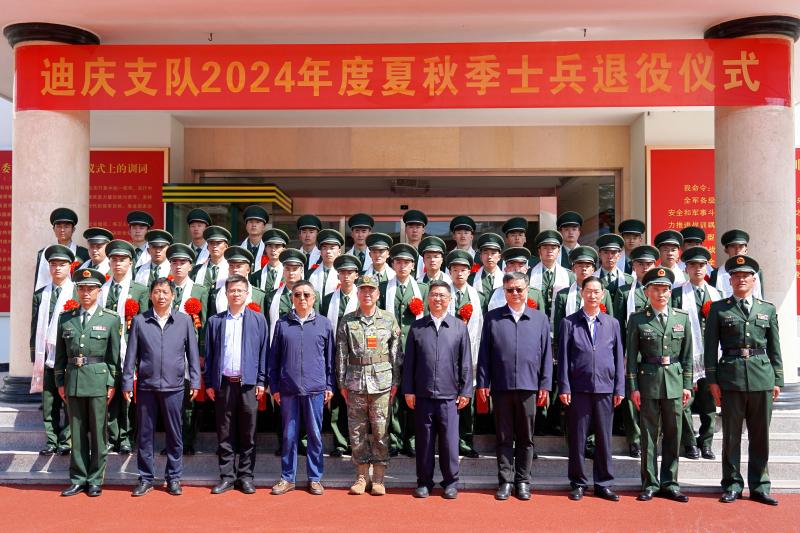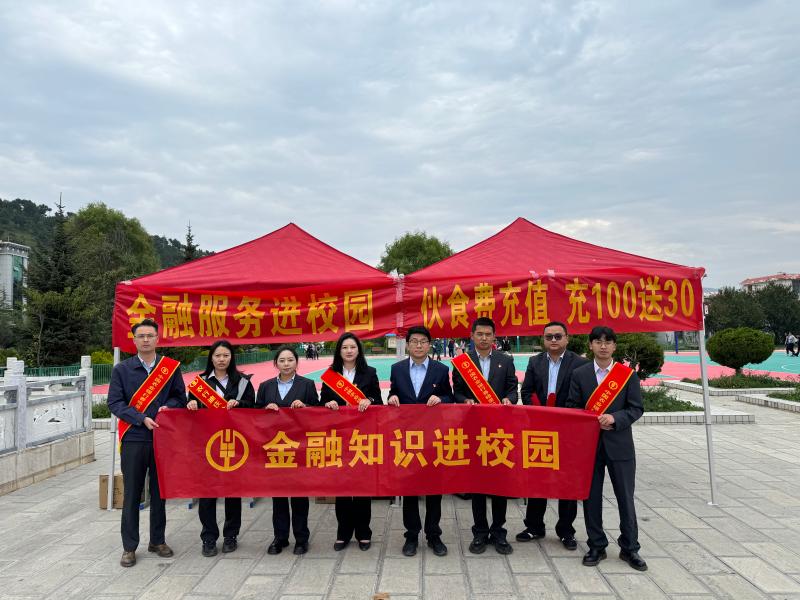|
骤雨初歇,彩虹乍现。小院里响起锣鼓声,6个衣着各异的中老年人踩着鼓点挥着黄旗走到院子中央,“舞台”虽然很简陋,但表演的人们唱念做打毫不含糊。“叫一声岳大哥你听俺道,兄弟我招兵买马为你把仇报。”“牛皋你速速把兵退,不可将我一世忠名毁。”……这样的唱腔唱词出现在西南边境,大山深处的维西傈僳族自治县,让人有不知身在何处之感。 Rain ceased and a rainbow appeared. In a small rural yard, gongs and drums sounded and six performers moved to the yard center, dancing to the beat and waving yellow banners. They simply took the yard as stage, but their performances were impressive. “Can you hear me, my dear brother Yue? On behalf of you, I recruit soldiers for revenge,” sang the actors. “Warrior Niu Gao, you shall retreat quickly; you can never stain my loyalty.” Such typical Han choruses in Dacixi Opera were actually sung in a mountainous village in northwest Yunnan’s Weixi Lisu Autonomous County. This is kind of paradoxical for the area is better known for the Lisu culture.
在维西,大词戏是一种独特的存在。它源起清代,由外迁至此的江西人刘超绩结合本土文化特点所创。与当地奔放热情、参与性强的少数民族歌舞相比,它低调含蓄;在中国,大词戏是一种有益的补充。在中国戏曲志300多剧种中,维西大词戏可谓独树一帜,是一块原生态活化石。 In Weixi, the Dacixi (big-word) opera is indeed a unique existence. It dates back to the Qing Dynasty, when Jiangxi native Liu Chaoji created the opera, fusing Weixi’s cultural elements into the traditional Han culture. Liu moved to Weixi from southeast China’s Jiangxi Province. Compared with aboriginal ethnic songs and dances, the opera is quieter and more implicative. Among 300 plus Chinese operas, the Dacixi opera in Weixi is seen as unique, and it is like an intact living fossil of opera history.
80岁的赵延祖坐在锣鼓前,衬衫雪白、西服挺括、礼帽有型、神情严肃。作为省级非物质文化遗产维西大词戏的第7代传承人,赵延祖的每次出场必定认真正式,用他的话说,这是对传承至今的文化的一种尊重。“汉文化在少数民族地区成为非物质文化遗产,很不容易,一定要重视它,让它成为本地文艺百花园的一朵奇葩。” Zhao Yanzu, aged 80, was sitting in front of the gongs and drums during the performances. Dressed in a suit and looking serious, Zhao is the 7th-generation inheritor of Dacixi Opera at the provincial level. “It is not easy for a Han-featured opera to be listed as a cultural heritage in ethnic minority areas,” said Zhao with pride. “And we should make the opera unique among Weixi arts.”
大词戏从创造之初,到现在已有280年的历史。其显著的特点是不托管弦,一唱众合,锣鼓点帮衬,与川剧相似,但说唱全为本土方言土语。对外来客而言,或许会听不太懂词句,但其浓郁的汉文化气息却一句即可感知。 Dacixi has a history of 280 years. The opera is similar to Sichuan Opera, featuring a lead singer and coupled with gongs and drums. Few string and pipe instruments are employed. However, the utterances and singings are all in the Weixi local dialect. For visitors from afar, they may not understand the words, yet the air of the Han culture can be easily sensed. 赵延祖的大词戏人生从5岁开始。他的外公李尚文是大词戏的第6代传人,从小耳濡目染,让他对大词戏有一种独特的情感。长大后,赵延祖当了裁缝。在一针一线、剪刀画石的单调日子中,大词戏慢慢成了点亮他生活的温暖之光。他不知疲倦地学,寒来暑往地练,终于成为了今天的大词戏大师。2007年,赵延祖成为维西大词戏唱点、鼓点省级非物质文化遗产项目代表性传承人。“成为省级传承人后,无论是教学生还是对外演出,都很有底气了。现在,我有38个学生,他们中有汉族,也有傈僳族、纳西族。有退休的公职人员,也有农民和外来打工的。年龄最大的60多,最小的30多。这支不同年龄、不同职业、多民族的学生队伍让我觉得很欣慰,我总是告诉他们,这是汉族曲种,但也是不分民族的优秀文化,我们每一个人都有责任保护传承,并将它发扬光大。” Zhao Yanzu began to study Dacixi at five, from his maternal grandfather Li Shangwen, who was the sixth inheritor of the opera. He developed strong affection to the art. After growing up, Zhao became a tailor, but his monotonous days of needlework was constantly decorated by the opera tunes, cheering him up and enlivening his life. Practice makes perfect. In 2007, Zhao Yanzu was recognized as inheritor and representative of the Weixi opera. “After the recognition, I gained more confidence in performing and teaching others,” said Zhao. Now, Zhao has 38 students, involving the Han, Lisu and Naxi peoples from varied fields of walks. Their ages range from 30 to 60, and they are retired civil servants, local farmers and migrant workers.
听这位80岁老人娓娓道来,周围的学生们都颌首微笑。已经学习大词戏10年的赵桂香第一个出声附和:“我非常喜欢大词戏,退休后就跟着父亲学。学了10年,才把九板十三腔、近30种唱法学会。不容易啊!”赵桂香一语道出大家共同的感慨。“我学了4年,天天缠着赵老师,才基本学会。”“我每天都来赵老师儿子的小院坝,跟着学打击。”“大词戏的念白是维西土话,外来的人学起来有难度。”“才开始觉得难,学会了唱起来感觉很有味道。每次演出都意犹未尽。”学生们你一言我一语地讲述起自己的学习苦恼和收获快乐。笑咪咪的赵延祖坐在一旁,不时插一句嘴。“大词戏纯属维西县保和镇的原生态非遗文化,地域性很强。不是本地人,还真的很难学。再加上这也是一门综合艺术,除了基本的唱念做打,还要会创作会化妆会做服装。学生们到今天这个水平,非常不容易。”老师的表扬,让围在周围的学生笑出了声,在夜色中传出很远。 “I like Dacixi a lot, and I’ve been studying the opera from my father for 10 years,” said Zhao Guixiang, daughter of Zhao Yanzu. By now, Guixiang has learned nearly 30 singing styles in 13 tunes. Other learners of Dacixi also shared ideas on the art: “I've studied the opera for 4 years, and I visit master Zhao every day. Now, I know the basics.” “I come to the yard to learn to play drums and gongs.” “It’s a bit difficult at first, but I gradually fell in love with the art.” Zhao Yanzu listened to his disciples attentively, smiling and instructing them from time to time. “The opera is original and particular to Weixi County, so people from other regions would have difficulty in learning local dialect in songs.” In the end, Zhao spoke highly of his students’ attainment in the opera, adding Dacixi is also an all-round art that encompasses singing, drum and gong playing, makeup and costume design. 有人问,“赵老师,大词戏学起来那么难,保护起来是不是也很难?”老人一挥手:“难!再难也要传承下去。”为了让传统的曲目有时代感,赵延祖近几年将更多精力放在了剧本创作上,用传统的唱腔演绎具有时代特点的内容,和谐相处、平安是福、文明诚信,都是创作主题。 “Mr. Zhao, is it hard to pass down the Dacixi opera since it’s difficult to learn?” asked one visitor. “Yes, very hard! But we need to do it anyway,” replied Zhao. To keep up with times, Zhao Yanzu has written some novel plays in the past few years. His new works focus on harmony, amity, peace, honest and social order.
“We are trying to make the traditional and new tunes known to more audiences,” said Zhao Guangxi, adding the 38-member Weixi team has performed in Beijing and Guangxi in recent years. On the World Heritage Day this year, the team also staged the opera in a local secondary school, making a hit at the campus. The Weixi cultural authority has collected all the Dacixi tunes and lyrics for a due CD version. “我坚信大词戏的传承是有希望的!无论是政府的支持还是学生的热爱坚持,都说明大词戏的香火不会熄灭。它会代代传继,不断发扬光大。”赵延祖很有信心。 “I am fully optimistic about the Dacixi inheritance either for official care or for students’ love.” Zhao Yanzu has confident in the art’s future. 云南日报全媒体记者:熊燕 储东华 张若谷 李文君 英文编译:王世学 |
【文化迪庆有传人】 维西大词戏传承人赵延祖:大山深处唱响汉族古戏调
来源:香格里拉网 作者: 发布时间:2018-09-17 16:29:58

频道精选
- 2024 年迪庆州新闻系列综合高级职称定向评审通过人员名单公示2024-09-05
- 香格里拉景区直通车:便捷出行,一站直达美景2024-09-05
- 香格里拉景区直通车:便捷出行,一站直达美景2024-09-05
- 张卫东到迪庆交通运输集团公司开展调研2024-09-05
- 福彩代销者:增强责任意识 倡导理性购彩2024-09-04
- 中央专项彩票公益金的用途及作用|下篇2024-09-04
- 中央专项彩票公益金的用途及作用|中篇2024-09-04
- 中央专项彩票公益金的用途及作用|上篇2024-09-04
- @迪庆人,这场活动需要您的参与!2024-09-04
- 积极参与2024年“99公益日·助力迪庆见义勇为”宣传募捐活动倡议书2024-09-04
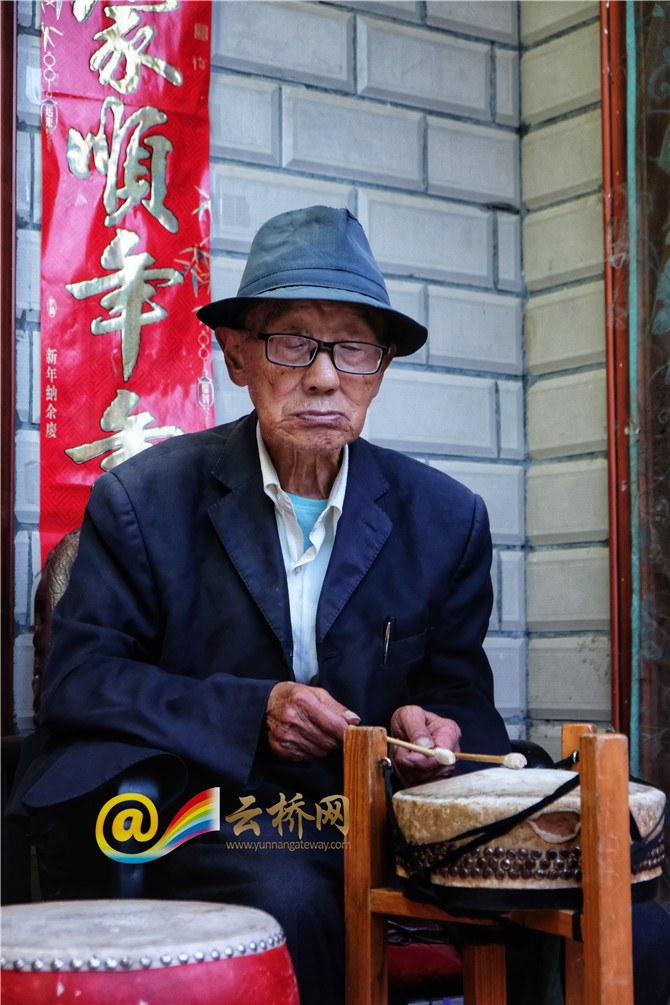
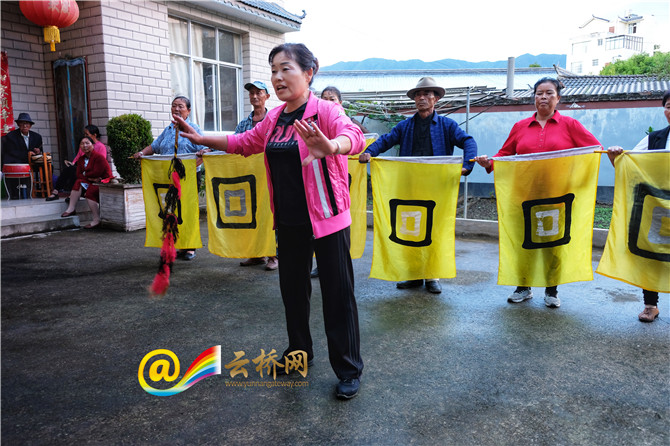
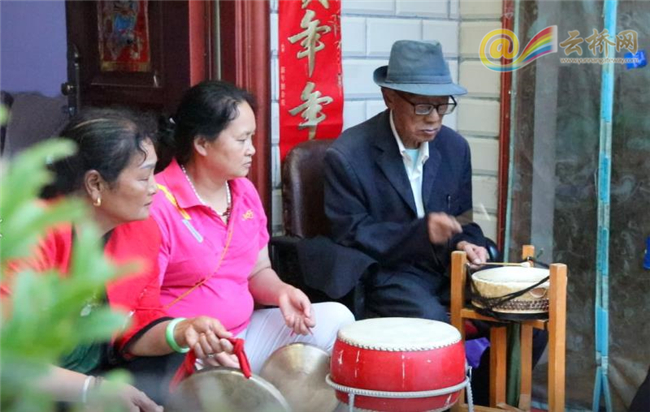

 “传统曲目和新的剧本我们都唱都推广。”赵桂香说,这支38人的队伍常进校园义演,就是想吸引更多的人了解这项传统文化。“去年,我们受中国美夕阳红组委会邀请,到北京演出。今年上半年,我们又有32人到广西演出。今年的世界遗产日,我们穿着戏服,带足装备,在县三中进行了展示,孩子们很感兴趣。”讲起大词戏的交流和展示,赵桂香眉飞色舞。最让大词戏爱好者们高兴的是,维西县文化局还将大词戏的所有唱腔唱词进行了收集整理,准备出光碟。
“传统曲目和新的剧本我们都唱都推广。”赵桂香说,这支38人的队伍常进校园义演,就是想吸引更多的人了解这项传统文化。“去年,我们受中国美夕阳红组委会邀请,到北京演出。今年上半年,我们又有32人到广西演出。今年的世界遗产日,我们穿着戏服,带足装备,在县三中进行了展示,孩子们很感兴趣。”讲起大词戏的交流和展示,赵桂香眉飞色舞。最让大词戏爱好者们高兴的是,维西县文化局还将大词戏的所有唱腔唱词进行了收集整理,准备出光碟。
